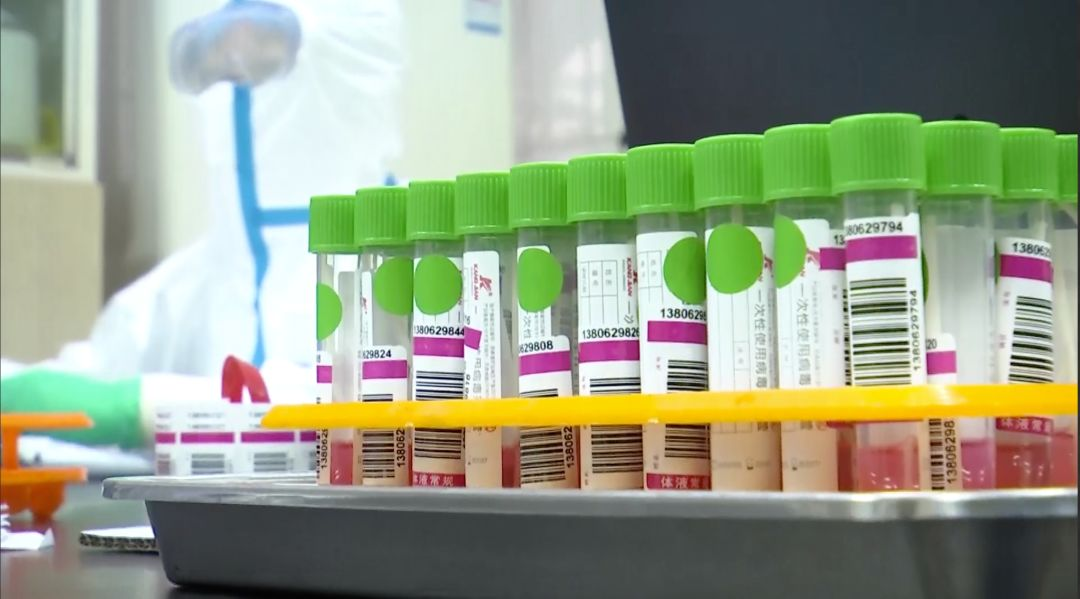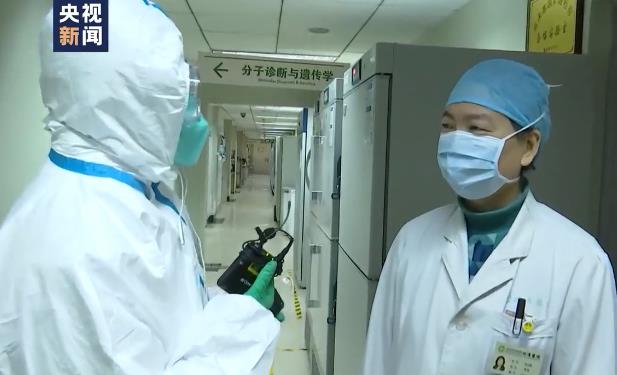01:22

Viral nucleic acid testing plays an indispensable role in epidemic prevention and control of the novel coronavirus outbreak. With the number of suspected and confirmed cases in the epicenter Wuhan rising recently, testing laboratories are receiving a large number of nucleic acid samples every day.
Why are confirmed cases rising?

Sun Ziyong (R), director of the Department of Laboratory Medicine at Tongji Hospital in Wuhan, talking to a CCTV reporter. /CCTV Screenshot
Sun Ziyong (R), director of the Department of Laboratory Medicine at Tongji Hospital in Wuhan, talking to a CCTV reporter. /CCTV Screenshot
The improved detection capability of viral nucleic acid is one reason for the increase in the number of confirmed cases, Sun Ziyong, director of the Department of Laboratory Medicine at Tongji Hospital of Tongji Medical College, Huazhong University of Science and Technology, told a CCTV reporter on Wednesday. "More and more qualified labs have joined to do the testings. Besides, labs that started testing earlier like us have also tried to expand testing capabilities in a variety of ways."
Currently, Tongji Hospital alone can handle 1,000 to 1,200 samples per day.
Why is the detection speed not keeping up?
Over six enterprises are now capable of manufacturing the nucleic acid testing boxes, with some of their daily production reaching 50,000 boxes. People are concerned that testing may be too slow.
Multiple processes should be gone through from collection to detection, including sampling, inactivation, nucleic acid extraction and reagent reaction, which are complicated with high risk.
A series of processes, such as sample transportation, data entry and response sensitivity control, will all affect the testing time for samples, said Sun. "It will take four to six hours on average to get the result of a sample after it is sent to the lab."
To ensure both the speed and quality of the sample testing results, the lab has a 24-hour shift.
"We have always been optimizing our method," said staffer Peng Jing, who has taken only one day off since the outbreak. "We hope to use our technologies and experiences to mobilize more people (to do the testing)" to further improve detection.
(Video by Wang Zengzheng)